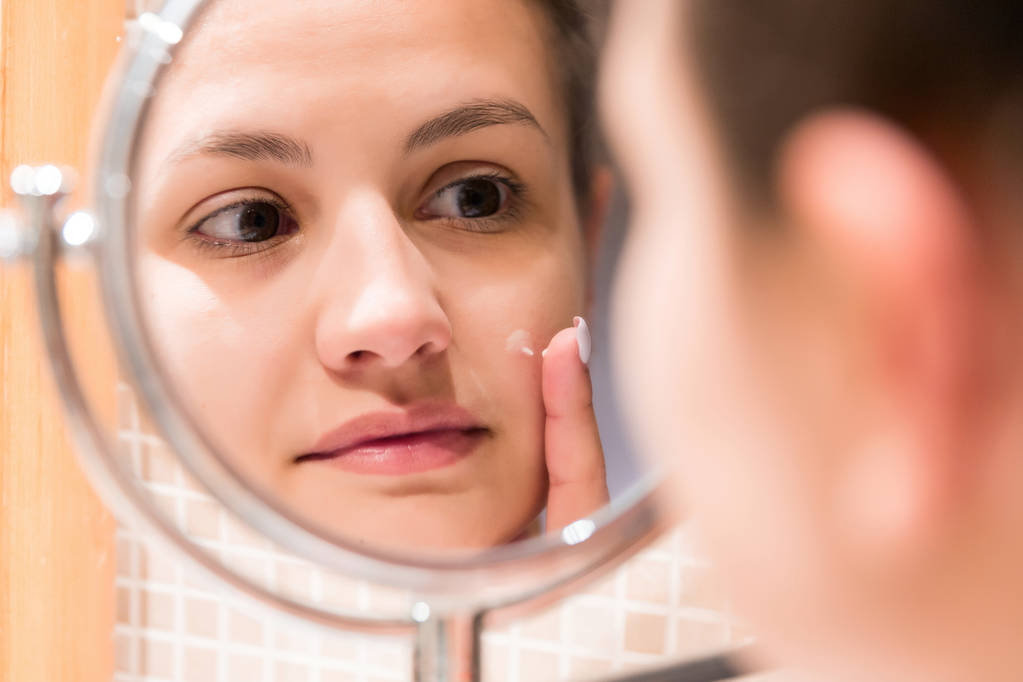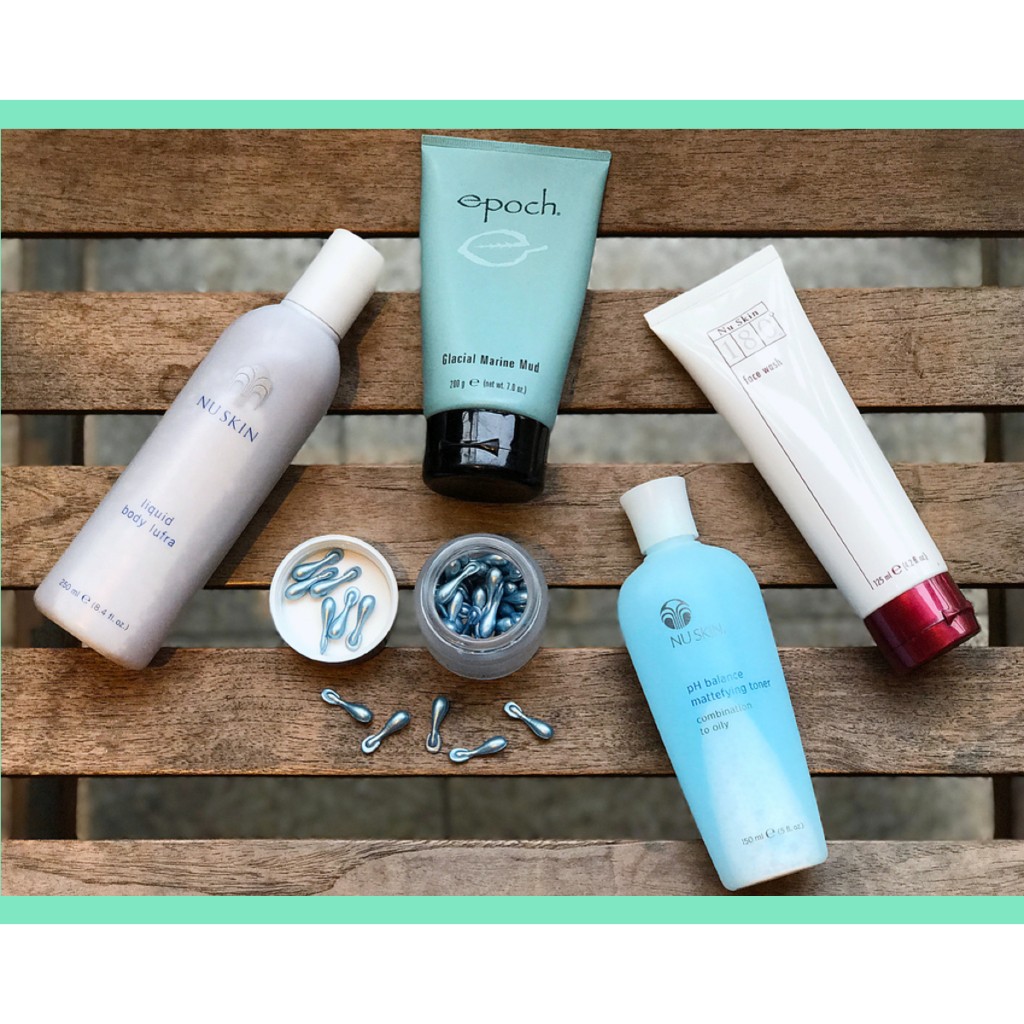Discover the optimal frequency for reapplying sunscreen throughout the day to ensure maximum protection against harmful UV rays.
How Often Should You Reapply Sunscreen Throughout the Day?
We all know the importance of sunscreen in protecting our skin from the harmful rays of the sun. But how often should you actually reapply it throughout the day? Let’s dive into the science behind sunscreen application and explore the best practices for keeping your skin safe and sunburn-free.

Understanding the Importance of Sunscreen
Before we delve into the nitty-gritty of reapplication, let’s take a moment to appreciate the vital role sunscreen plays in protecting our skin. Sunscreen acts as a shield, guarding our delicate skin against the dangers of ultraviolet (UV) radiation.
The Role of Sunscreen in Skin Protection
When we slather on sunscreen, it creates a protective barrier on the surface of our skin. This barrier absorbs or reflects UV rays, preventing them from penetrating deeper layers and potentially causing damage. In other words, sunscreen acts as a superhero cape for our skin, shielding it from harm.
But how does sunscreen accomplish this remarkable feat? Sunscreen contains active ingredients that work together to provide broad-spectrum protection against both UVA and UVB rays. UVA rays have longer wavelengths and can penetrate deeper into the skin, contributing to premature aging and wrinkles. On the other hand, UVB rays have shorter wavelengths and primarily cause sunburn. By blocking these harmful rays, sunscreen helps prevent sunburn, premature aging, and other skin damage.
Moreover, sunscreen also reduces the risk of developing skin cancer. According to the Skin Cancer Foundation, regular sunscreen use can lower the risk of melanoma, the deadliest form of skin cancer, by up to 50%. By incorporating sunscreen into our daily skincare routine, we can take a proactive step towards protecting our skin’s health.
The Dangers of Ultraviolet (UV) Radiation
UV radiation isn’t just your average sneaky sunshine; it poses real dangers to our skin. Prolonged exposure to UV rays can lead to sunburn, premature aging, and even an increased risk of skin cancer. That’s why it’s crucial to take sun protection seriously, especially during those sunny summer days.
When our skin is exposed to UV radiation, it undergoes a series of harmful effects. Initially, the skin may turn red and become painful, resulting in a sunburn. This inflammatory response is the body’s way of repairing the damage caused by the sun’s rays. However, repeated sunburns can increase the risk of developing skin cancer over time.
In addition to sunburn, UV radiation can also accelerate the aging process of our skin. The collagen and elastin fibers that give our skin its youthful appearance can break down when exposed to excessive UV rays. As a result, our skin may become wrinkled, saggy, and develop dark spots or uneven pigmentation. This premature aging is known as photoaging and can make us look older than our actual age.
Furthermore, UV radiation can damage the DNA in our skin cells, potentially leading to mutations and the development of skin cancer. Skin cancer is the most common type of cancer in the United States, with millions of cases diagnosed each year. By protecting our skin with sunscreen, we can significantly reduce our risk of developing this potentially life-threatening disease.
It’s important to note that UV rays are present year-round, even on cloudy or overcast days. They can penetrate through windows, so it’s essential to wear sunscreen even when indoors or driving. By incorporating sunscreen into our daily routine, we can ensure that our skin remains protected from the harmful effects of UV radiation.
The Science Behind Sunscreen Application
Now that we understand why sunscreen is our skin’s BFF, let’s dive into the science behind how it works and how often we need to reapply it.
But before we delve into the details, let’s take a moment to appreciate the invention of sunscreen. It’s a remarkable product that has revolutionized the way we protect our skin from the harmful effects of the sun. Without sunscreen, our skin would be left vulnerable to the damaging ultraviolet (UV) rays, which can cause sunburn, premature aging, and even skin cancer. So, let’s explore the fascinating science behind sunscreen and how it keeps our skin safe.
How Sunscreen Works
Sunscreen works by either absorbing or reflecting UV rays. Chemical sunscreens contain organic compounds that absorb UV radiation, while physical sunscreens use mineral ingredients like zinc oxide or titanium dioxide to reflect and scatter the rays. Both types of sunscreen provide effective protection, so choose the one that suits your fancy.
When you apply sunscreen to your skin, the active ingredients in the product form a protective barrier that prevents the UV rays from penetrating into the deeper layers of your skin. Chemical sunscreens work by absorbing the UV radiation and converting it into heat, which is then dissipated from the skin. On the other hand, physical sunscreens create a physical barrier on the skin’s surface that reflects and scatters the UV rays, preventing them from reaching the skin.
It’s important to note that sunscreen doesn’t completely block out UV rays. Instead, it reduces the amount of UV radiation that reaches your skin, providing you with a level of protection. That’s why it’s crucial to apply sunscreen generously and reapply it regularly to maintain its effectiveness.
Factors Affecting Sunscreen Efficacy
Several factors can affect how well your sunscreen performs. Sweat, water, and even rubbing can diminish its efficacy. So, it’s important to keep these factors in mind when considering how often to reapply.
When you sweat, the sunscreen on your skin can be diluted or washed away, reducing its ability to protect you from the sun. Similarly, when you come into contact with water, whether it’s from swimming, sweating, or simply splashing around, the sunscreen can be washed off, leaving your skin exposed to the sun’s rays. Additionally, activities that involve rubbing or friction, such as towel drying or wearing tight clothing, can also cause the sunscreen to wear off more quickly.
To ensure maximum protection, it’s recommended to reapply sunscreen every two hours, or more frequently if you’re engaging in activities that cause heavy sweating or water exposure. By doing so, you can maintain the effectiveness of the sunscreen and keep your skin shielded from the harmful effects of the sun.
Now that we’ve explored the science behind sunscreen application, it’s clear that this essential skincare product is not only a shield against UV rays but also a testament to the wonders of scientific innovation. So, next time you reach for that bottle of sunscreen, remember the fascinating science that goes into keeping your skin safe and protected.
Determining How Often to Reapply Sunscreen
So, how often should you slather on another round of sunscreen? While there’s no one-size-fits-all answer, here are some general guidelines to help you navigate the sunscreen reapplication game.
When it comes to protecting your skin from the harmful effects of the sun, applying sunscreen is crucial. However, simply applying it once in the morning is not enough to keep your skin shielded throughout the day. Sunscreen can wear off or become less effective over time, especially if you are exposed to water or sweat. That’s why knowing how often to reapply sunscreen is essential for maintaining optimal protection.
General Guidelines for Sunscreen Reapplication
A good rule of thumb is to reapply sunscreen every two hours. This ensures that you maintain optimal protection throughout the day, especially if you’re spending time outdoors. It’s important to note that this time frame may vary depending on factors such as your skin type, the intensity of the sun’s rays, and the activities you’re engaged in.
By reapplying sunscreen every two hours, you create a barrier on your skin that helps to block the harmful ultraviolet (UV) rays emitted by the sun. This is particularly important between the peak hours of 10 a.m. and 4 p.m. when the sun’s rays are the strongest. Remember, it’s better to be safe than sorry when it comes to protecting your skin from those sneaky UV rays!
Special Considerations for Water Activities and Sweating
If you’re planning to take a dip in the pool or work up a sweat during a workout, you’ll need to up your sunscreen game. Water activities and excessive sweating can wash away your sunscreen, leaving your skin vulnerable. In these cases, it’s best to reapply sunscreen every 40 to 80 minutes to stay on the safe side.
When you’re in the water, whether it’s swimming, surfing, or even just splashing around, the sunscreen you applied before entering can easily be washed away. Even if the sunscreen claims to be water-resistant, it’s still important to reapply frequently to ensure continuous protection. The same goes for sweating. When you engage in physical activities that make you sweat, the sunscreen on your skin can diminish, leaving your skin exposed to harmful UV rays.
By reapplying sunscreen every 40 to 80 minutes during water activities and excessive sweating, you can maintain a higher level of protection. This will help reduce the risk of sunburn, premature aging, and skin damage caused by the sun’s rays.
Choosing the Right Sunscreen for Your Needs
Now that we’ve got the reapplication part covered, let’s talk about choosing the right sunscreen. With countless options available, it can be overwhelming. But fear not, my sun-seeking friend, for I’m here to guide you through the sunscreen aisle.

Understanding SPF Ratings
When it comes to SPF, bigger isn’t necessarily better. SPF, or Sun Protection Factor, measures a sunscreen’s ability to protect against UVB rays, which cause sunburn. Higher SPF values offer more protection, but here’s the kicker – the difference between SPF 30 and 50 is not as significant as you might think. So, don’t stress over the numbers; just make sure you’re using a broad-spectrum sunscreen with an SPF of at least 30.
Physical vs. Chemical Sunscreens
Choosing between physical and chemical sunscreens is like deciding between Batman and Superman – both are great, but it ultimately comes down to personal preference. Physical sunscreens are often better for sensitive skin, as they provide immediate protection upon application. On the other hand, chemical sunscreens may be more cosmetically elegant, making them a favorite among those who prefer a lightweight feel.
Common Misconceptions About Sunscreen Use
Before we wrap up, let’s debunk a couple of myths surrounding sunscreen use. We wouldn’t want you to be misled, after all!
The Myth of “Waterproof” Sunscreen
Contrary to popular belief, there’s no such thing as waterproof sunscreen. Even the most water-resistant formulas will eventually break down when exposed to water or excessive sweating. So, remember to reapply regularly, especially after taking a refreshing dip or working up a sweat.
The Fallacy of Total Sun Protection
No matter how diligently you apply sunscreen, it’s essential to remember that it’s just one piece of the sun protection puzzle. Seeking shade, wearing protective clothing, and accessorizing with a chic wide-brimmed hat are all important measures to complement your sunscreen application.
So there you have it, my sunshine-loving friend – the lowdown on how often to reapply sunscreen throughout the day. Remember to make friends with your sunscreen, stay safe under the sun’s rays, and embrace that inner beach goddess or god with confidence!





